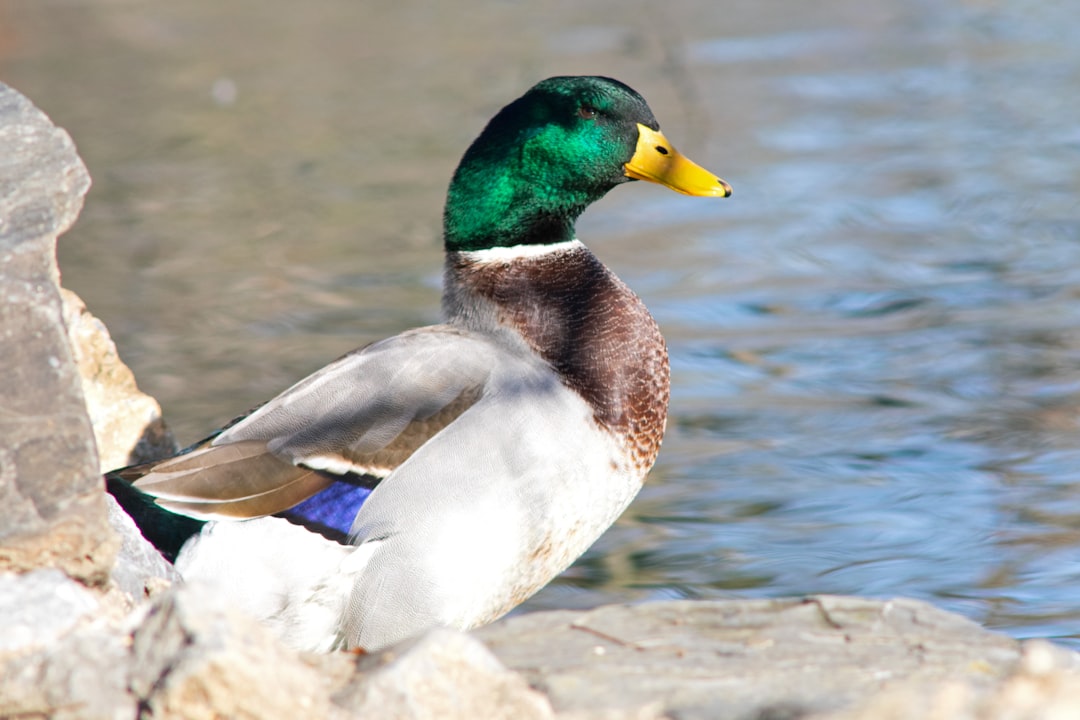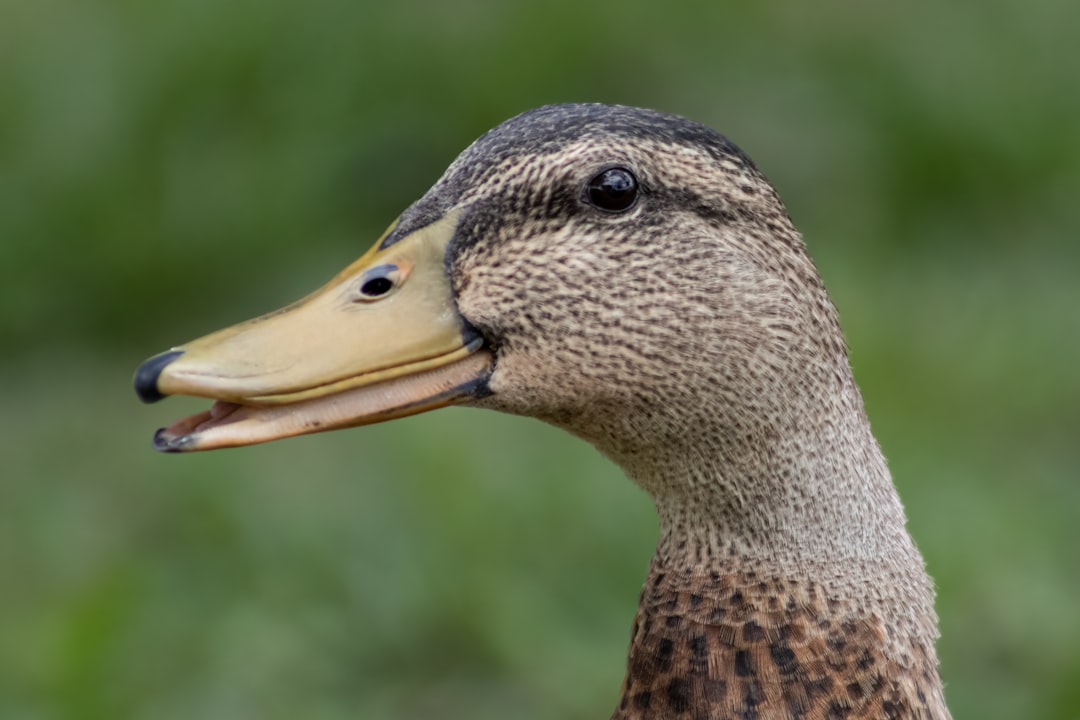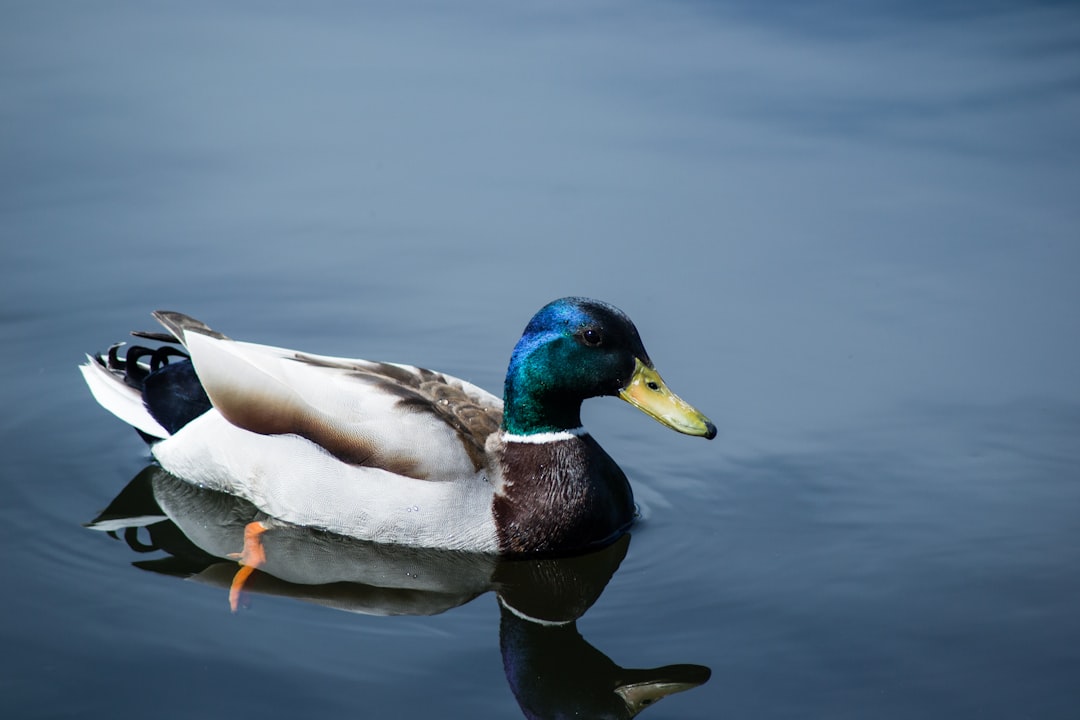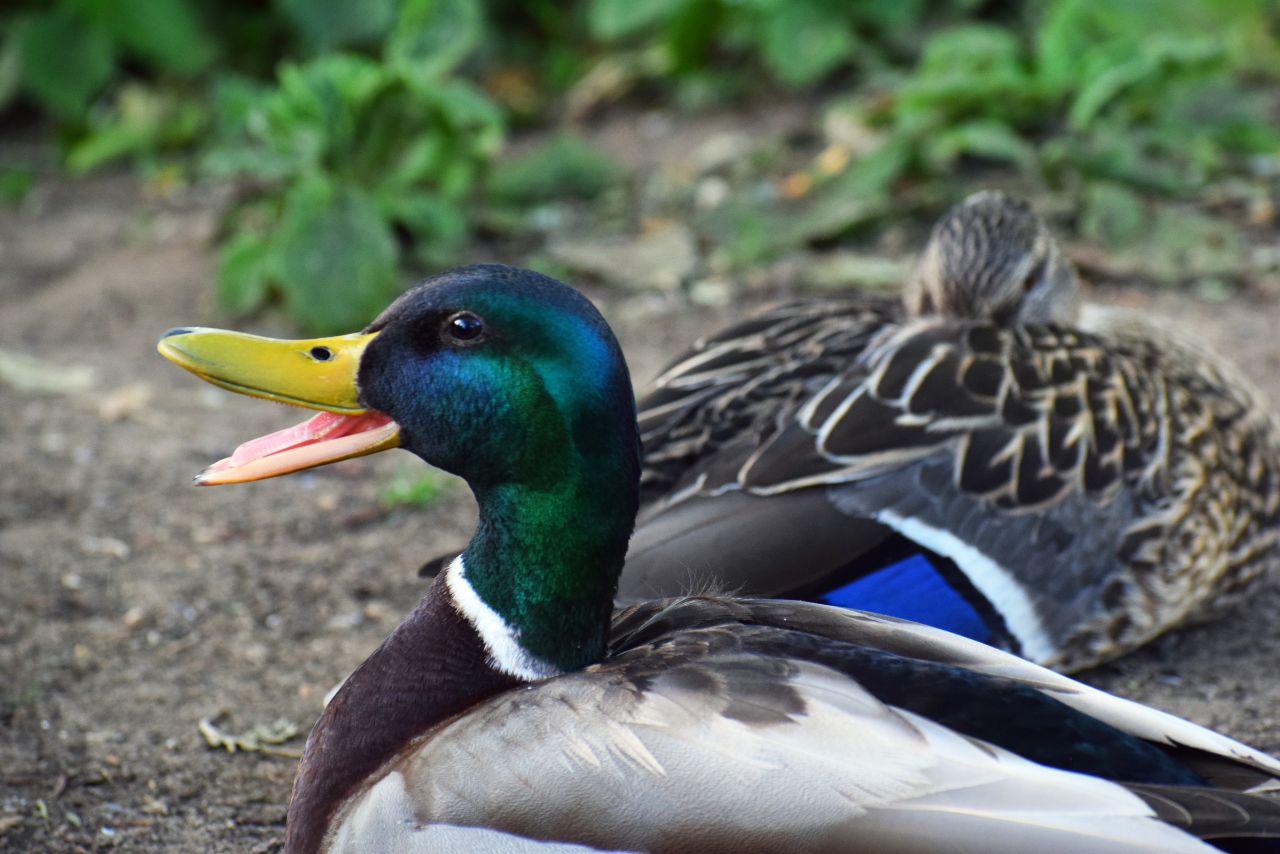Male ducks are known for their striking colors and impressive feathers, but one question that often arises is Do Male Ducks Quack?
While it is generally accepted that female ducks quack, there is some confusion about whether or not males also make this familiar sound.
Do Male Ducks Quack? No, male ducks do not quack. While it is more common for female ducks to quack, males also produce this vocalization.
Male ducks often have a raspier and quieter quack compared to females. They also make a variety of other vocalizations, such as grunts and whistles, which are used for communication and courtship displays.
These sounds are important in establishing dominance and attracting mates.
In this article, we’ll explore the answer to the question of whether or not male ducks quack, and delve into the reasons behind their vocalizations.
Explanation of quacking in ducks
The quacking sound that ducks make is produced by a specialized structure in their throats called the syrinx. This structure vibrates when air passes through it, producing the familiar quack sound.
While male ducks may not quack as often or as loudly as females, they are certainly capable of doing so.
It’s important to note that not all duck species quack. For example, the whistling ducks found in tropical regions of the Americas, Africa, and Asia produce a high-pitched whistle rather than a quack.
Similarly, male wood ducks have a distinctive squeal-like call rather than a traditional quack.
Why Male Ducks Don’t Quack?

This is because male ducks have other vocalizations that they use to communicate and attract mates. Their quieter and raspier quack may not be as noticeable as the female’s louder version.
Male ducks also have different priorities than females; their focus is often on displaying dominance and attracting mates rather than vocalizing for communication purposes.
Male Ducks’ Voice Box Isn’t Built for Quacking
It is commonly believed that male ducks do not quack, they are capable of making this sound. Their vocalizations are quite different from those of females and may be quieter and raspier.
Male ducks have other vocalizations that they use more frequently for communication and courtship displays. The diversity of sounds made by ducks is fascinating and varies greatly across different species.
Male Duck Vocalizations
Male ducks use a variety of vocalizations to communicate. Their sounds range from grunts and whistles to quieter and raspier quacks.
These different vocalizations are important for establishing dominance, attracting mates, and identifying their species. While male ducks may not quack as frequently or as loudly as females, they are certainly capable of doing so.
It’s worth noting that the vocalizations of ducks vary greatly across different species. For example, the whistling ducks found in tropical regions produce a high-pitched whistle rather than a quack.
Male Duck Sounds Other than Quacking

Male ducks use a variety of sounds other than quacking to communicate. For example, they produce grunts and whistles during courtship displays and to establish dominance.
Male ducks also have a distinctive whistling sound during flight that helps to identify their species. Interestingly, some male ducks even produce non-vocal sounds, such as the “sneezing” noise made by the northern pintail.
Differences in Vocalizations Between Male and Female Ducks
Male duck vocalizations differ from those of females. Male ducks have a raspier and quieter quack compared to females. They also make a wide range of other sounds such as grunts, whistles, and even non-vocal sounds.
These sounds are important for communication, courtship displays, and establishing dominance. In contrast, female ducks tend to use quacks for communication purposes more frequently.
The differences in vocalizations between male and female ducks are due to the anatomy of their voice boxes. The male duck’s voice box is not built for producing loud or frequent quacks.
The Role of Vocalizations in Male Duck Mating
The vocalizations of male ducks play an important role in mating. During courtship displays, males use a combination of sounds and physical displays to attract females.
The raspier quack of male ducks may be less noticeable than the louder quacks of females, but it is still used to communicate with potential mates.
What Sound Does a Male Duck Make?
So, what sound does a male duck make? While they may not quack as often or as loudly as females, male ducks use a wide range of vocalizations to communicate.
These sounds include grunts, whistles, raspier quacks, and even non-vocal sounds like the “sneezing” noise made by the northern pintail. Male ducks also have a distinctive whistling sound during flight that helps to identify their species.
The diversity of sounds made by ducks is fascinating and varies greatly across different species.
Do Male Ducks Whistle?
Yes, male ducks do whistle. In fact, whistling is one of the most common sounds produced by ducks during flight. This sound is created by air passing over their wings and can be used to identify different species of duck.
For example, the Eurasian wigeon has a distinctive three-note whistle, while the mallard produces a softer, more nasal whistle.
Male ducks also use whistling as part of their courtship displays. During these displays, males will often fly overhead and produce a series of whistles to attract females.
These displays can be quite elaborate and involve a combination of vocalizations and physical movements.
Are Male Ducks Noisy?

While male ducks may make a variety of sounds, they are not necessarily considered noisy. In fact, their vocalizations are generally quieter and less frequent than those of female ducks.
It’s also worth noting that some species of ducks are louder than others. For example, the mallard is known for its loud quacking, while the whistling duck produces a high-pitched whistle that can be quite piercing.
Overall, male ducks are capable of making a range of sounds to communicate with other ducks and attract potential mates.
Are All Duck’s Equally Loud?
No, not all ducks are equally loud. Different species of ducks have different vocalizations and volumes.
Some ducks, like the mallard, are known for their loud quacking, while others, like the northern pintail, produce quieter sounds like sneezes.
It’s also important to note that a duck’s environment can affect the volume of their vocalizations. Ducks in noisy environments may need to call louder to be heard by other ducks.
Conversely, ducks in quiet environments may use softer calls to avoid attracting unwanted attention.
Does a Duck Quack Echo?
While ducks are known for their vocalizations, it is a common misconception that a duck’s quack echoes. In reality, the sound of a duck’s quack does not echo any differently than other sounds.
How to Keep Your Ducks Quiet?
If you want to keep your ducks quiet, the best approach is to ensure that they are comfortable and stress-free. A calm and relaxed environment can help to minimize excessive vocalizations.
Providing adequate shelter, food, and water can also reduce stress levels in ducks.
It’s also important to note that certain breeds of ducks are generally quieter than others. For example, Muscovy ducks are known for being relatively quiet compared to other breeds.
Ultimately, while some vocalizations from male and female ducks are normal and natural, excessive noise may be a sign of stress or other issues.
Watch Video: Do Male Ducks Quack?
Conclusion: Do Male Ducks Quack?
Do Male Ducks Quack? Male ducks do not quack like females, but they make a range of sounds to communicate with their community and attract potential mates.
Whistling is one of the most common sounds produced by ducks during flight and courtship displays. While male ducks are not considered noisy, some species and individuals may be louder than others.
Keeping ducks quiet is possible by ensuring they are comfortable and stress-free, providing adequate shelter, food, and water. Understanding the vocalizations of ducks is essential to understanding their behavior and social dynamics.
By creating a peaceful environment for them, we can help to keep them healthy while minimizing noise levels.
FAQs
Do Male Ducks Quack Like Females?
No, male ducks do not quack like females. They make a range of sounds, including whistles, grunts, and squeaks.
Are Male Ducks Generally Noisy?
No, male ducks are not generally noisy. Their vocalizations are quieter and less frequent than those of females.
Can Different Species of Ducks Have Different Volumes and Pitches to Their Calls?
Yes, different species of ducks have different vocalizations and volumes. Male and female ducks within the same species may also have different volumes and pitches to their calls.
Do Ducks Quack Differently in Noisy and Quiet Environments?
Yes, ducks in noisy environments may need to call louder to be heard by other ducks. Conversely, ducks in quiet environments may use softer calls to avoid attracting unwanted attention.
How Can I Keep My Ducks Quiet?
To keep your ducks quiet, provide them with a comfortable and stress-free living environment, adequate shelter, food, and water. Some breeds of ducks are generally quieter than others, such as Muscovy ducks.




